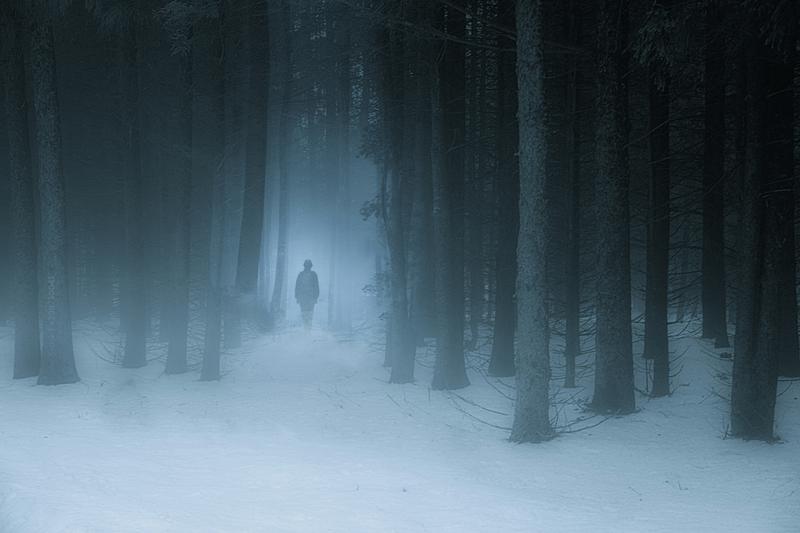by Shirley Dees
October 7, 2025
The Salvage by Anbara Salam; Tin House; 384 pages; $17.99.
Ghosts demand to be seen. Acting as renderings of unfinished business, unserved justice, and secrets begging to be unearthed, they are a construct of what we believe. But are they only illusions of wild imaginations, or are they projections of guilt we place on the supernatural? These abstract concepts are intertwined with the highest qualities of folklore and tradition to create Anbara Salam’s The Salvage, a novel so delicately crafted and aged like drams of the purest scotch whisky that readers are compelled to devour it from the first sip.
In The Salvage, Marta Khoury, a young marine archaeologist employed by a museum near Edinburgh, volunteers for an assignment in the small and somewhat secluded eastern Scottish isle of Cairnroch. She hopes to excavate more than just treasures from the sunken Victorian ship of the island’s long-lost sea captain, Auld James, but to jointly exorcize the grief and guilt she amassed when her husband’s best friend, and her secret lover, died during an illicit weekend affair. Salam constructs a narrative that forces her character to confront the paradigms of her iniquity and torment to expose not just how difficult and rewarding this process is, but also to speak to its tenable importance.
Diving into the frigid waters, Marta comes face-to-face with the horrors that lurk below and above the shallow depths of Auld James’s underwater grave, resurrecting barrels of secrets and shame that cloud her and the town of Cairnroch. Deeply entrenched in Gaelic custom, Salam pushes Marta to discover more than her fair share of history, revealing old legends, and becomes entangled in a scandal where ghosts transform into corporeal figures occupying spaces beyond her nightmares.
Appropriately set during the “Big Freeze” of Winter 1962, Salam crafts her historical novel to challenge her characters in ways not unfamiliar to our present-day selves, plunging them in an unrelenting, bone-chilling cold, pressuring them to deal with the consequences of their choices and wrestle with the notion of who they are, what they’ve become, and whether or not they are good or bad souls predestined for a particular legacy. The pillars of Calvinistic credence of Cairnroch’s residents serve as the backdrop for the moral questions lingering in Salam’s prose, which the author uses to raise doubts about the tenet that only the special “elect” are truly saved, while the rest cannot be salvaged. Cairnroch residents believe that no amount of good deeds or service can save a damned soul, which becomes increasingly problematic for Marta, who is desperate to atone for her sins.
Salam sketches her main character, Marta, in such a way that the reader is obligated to see themselves within the lines of this Scottish take on a hero’s quest, where Marta (and by proxy the reader) does not view herself as the heroine of the situation. In the technical sense, Salam’s novel is a character-driven exploration. Marta’s first-person narration dictates the reader’s point of view in everything, immersing them in Marta’s conscience and refusing to place blame on the other characters' imperfections and mistakes. Everything that happens in the story is a result of Marta’s choices and her beliefs. Anxious to fit in, harboring guilt and seeking mercy, haunted by a cycle of negative self-esteem, she is constantly ostracized, reinforced by Cairnroch society’s branding her as an “outsider” and literally banished to suffer through the height of the Cuban Missile Crisis. Marta’s quest to save her sanity (and soul), and Salam’s choice to place the reader solely behind her eyes, The Salvage nominates itself as an allegory for struggles in belief, self-righteousness, and determining between what is real and what is imagined. Confronting histories and accepting the consequences of choice is painful, but ignoring complicated verities does not make them disappear. Much like ghosts, truths demand to be known, and Salam valiantly reinforces the message that ignorance of reality is a perk of the privileged.
However, there is a risk in Salam’s choice to keep the reader strictly connected to Marta’s narrative voice. Dwelling inside a critical mind too long can sink the reader to an insufferable depth. Still, Salam delicately surfaces the tonality of her prose by balancing Marta’s doubts and anxieties with characters buoyed across the personality spectrum, from warm and witty to frigidly brash. Most important of these is Marta’s relationship with Elsie, the granddaughter of the wise and hearty Alice, lifelong residents of Cairnroch who practice loyalty nearly to a fault. Elsie is Marta’s balm to acquiescence, the moral compass who refuses to fall in line with the rest of her Calvinistic neighbors and entertain the same elements of fantasy. It is through Elsie and the host of Cairnroch citizens that Salam comments loudly about society’s struggle with isolationism and historical truth. Plot points that seem nonessential are threads Salam skillfully weaves into a message of the risks and rewards of doctrine and the dangers and joys they harbor. Exposing how, even through the best attempts, pasts cannot be escaped and the longer the spirits of ignorance are swilled, the stronger the damaging hallucinations take hold.
The Salvage is an adventurous gothic trip through Scottish tradition, introducing many to old customs while deploying an adroitly written novel that combines the finest elements of a ghost story and a heroine’s quest to comment on moral superiority. Salam wants us to consider the choices we make about what we believe in, spiritually, and about ourselves.
__________________________________________________________________________________________________________________________________________________________________________
__________________________________________________________________________________________________________________________________________________________________________
__________________________________________________________________________________________________________________________________________________________________________
Ghosts and Grief: Navigating Moral Creedence in Anbara Salam’s The Salvage
FICTION REVIEW
Image by Todd Trapani from Unsplash
Shirley Dees earned an MFA from the Naslund-Mann Graduate School of Writing at Spalding University in Louisville, Kentucky. Her fiction has appeared in Empty House Press, After Happy Hour Review, Bright Flash Literary, Bangalore Review, and others. When not writing, Shirley is busy supporting staff and student needs at her rural school district, and reading beneath the shade of centuries-old oak trees. She lives in south Texas with her husband, daughter, two princess barn cats, and geriatric pet turtle.
__________________________________________________________________________________________________________________________________________________________________________
© 2025 Iron Oak Editions
Stay Connected to Our Literary Community. Subscribe to Our Substack Roots & Words





